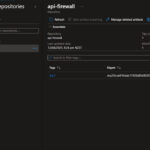Announcement: Azure Logic Apps (Standard) Automated Testing Public Preview
April 25, 2025
Azure Container Registry Continuous Patching for Security
April 25, 2025What Are Fabric Data Agents?
Fabric Data Agents are intelligent, AI-powered assistants embedded within Microsoft Fabric, a unified data platform that integrates data ingestion, processing, transformation, and analytics. These agents act as intermediaries between users and data, enabling seamless interaction through natural language queries in the form of Q&A applications. Whether it’s retrieving insights, analyzing trends, or generating visualizations, Fabric Data Agents simplify complex data tasks, making advanced analytics accessible to everyone—from data scientists to business analysts to executive teams.
How Do They Work?
At the center of Fabric Data Agents is OneLake, a unified and governed data lake that joins data from various sources, including on-premises systems, cloud platforms, and third-party databases. OneLake ensures that all data is stored in a common, open format, simplifying data management and enabling agents to access a comprehensive view of the organization’s data.
Through Fabric’s Data Ingestion capabilities, such as Fabric Data Factory, OneLake Shortcuts, and Fabric Database Mirroring, Fabric Data Agents are designed to connect with over 200 data sources, ensuring seamless integration across an organization’s data estate. This connectivity allows them to pull data from diverse systems and provide a unified analytics experience.
Here’s how Fabric Data Agents work:
- Natural Language Processing: Using advanced NLP techniques, Fabric Data Agents enable users to interact with data through conversational queries. For example, users can ask questions like, “What are the top-performing investment portfolios this quarter?” and receive precise answers, grounded on enterprise data.
- AI-powered Insights: The agents process queries, reason over data, and deliver actionable insights, using Azure OpenAI models, all while maintaining data security and compliance.
- Customization: Fabric data agents are highly customizable. Users can provide custom instructions and examples to tailor their behavior to specific scenarios. Fabric Data Agents allow users to provide example SQL queries, which can be used to influence the agent’s behavior. They also can integrate with Azure AI Agent Service or Microsoft Copilot Studio, where organizations can tailor agents to specific use cases, such as risk assessment or fraud detection.
- Security and Compliance: Fabric Data Agents are built with enterprise-grade security features, including inheriting Identity Passthrough/On-Behalf-Of (OBO) authentication. This ensures that business users only access data they are authorized to view, keeping strict compliance with regulations like GDPR and CCPA across geographies and user roles.
- Integration with Azure: Fabric Data Agents are deeply integrated with Azure services, such as Azure AI Agent Service and Azure OpenAI Service. Practically, organizations can publish Fabric Data Agents to custom Copilots using these services and use the APIs in various custom AI applications. This integration ensures scalability, high availability, and performance and exceptional customer experience.
Why Should Financial Services Companies Use Fabric Data Agents?
The financial services industry faces unique challenges, including stringent regulatory requirements, the need for real-time decision-making, and empowering users to interact with an AI application in a Q&A fashion over enterprise data. Fabric Data Agents address these challenges head-on through:
- Enhanced Efficiency: Automate repetitive tasks, freeing up valuable time for employees to focus on strategic initiatives.
- Improved Compliance: Use robust data governance features to ensure compliance with regulations like GDPR and CCPA.
- Data-Driven Decisions: Gain deeper insights into customer behavior, market trends, and operational performance.
- Scalability: Seamlessly scale analytics capabilities to meet the demands of a growing organization, without really investing in building custom AI applications which require deep expertise.
- Integration with Azure: Fabric Data Agents are natively designed to integrate across Microsoft’s ecosystem, providing a comprehensive end-to-end solution for a Modern Data Platform.
How different are Fabric Data Agents from Copilot Studio Agents?
Fabric Data Agents and Copilot Studio Agents serve distinct purposes within Microsoft’s ecosystem:
- Fabric Data Agents are tailored for data science workflows. They integrate AI capabilities to interact with organizational data, providing analytics insights. They focus on data processing and analysis using the medallion architecture (bronze, silver, and gold layers) and support integration with the Lakehouse, Data Warehouse, KQL Databases and Semantic Models.
- Copilot Studio Agents, on the other hand, are customizable AI-powered assistants designed for specific tasks. Built within Copilot Studio, they can connect to various enterprise data sources like OneLake, AI Search, SharePoint, OneDrive, and Dynamics 365. These agents are versatile, enabling businesses to automate workflows, analyze data, and provide contextual responses by using APIs and built-in connectors.
What are the technical requirements for using Fabric Data Agents?
- A paid F64 or higher Fabric capacity resource
- Fabric data agent tenant settingsis enabled.
- Copilot tenant switchis enabled.
- Cross-geo processing for AIis enabled.
- Cross-geo storing for AIis enabled.
- At least one of these: Fabric Data Warehouse, Fabric Lakehouse, one or more Power BI semantic models, or a KQL database with data.
- Power BI semantic models via XMLA endpoints tenant switchis enabled for Power BI semantic model data sources.
Final Thoughts
In a data-driven world, Fabric Data Agents are poised to redefine how financial services organizations operate and innovate. By simplifying complex data processes, enabling actionable insights, and fostering collaboration across teams, these intelligent agents empower organizations to unlock the true potential of their data. Paired with the robust capabilities of Microsoft Fabric and Azure, financial institutions can confidently navigate industry challenges, drive growth, and deliver superior customer experiences.
Adopting Fabric Data Agents is not just an upgrade—it’s a transformative step towards building a resilient and future-ready business. The time to embrace the data revolution is now.
Learn how to create Fabric Data Agents
